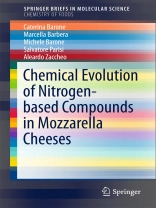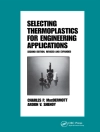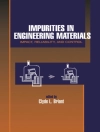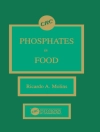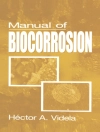This Brief evaluates the consequences of protein modifications in cheeses, with special emphasis on mozzarella cheeses. It explains the influence of biogenic amines on food quality and safety. As certain biogenic amines display a toxic potential to humans, considerable research has been undertaken in recent years to evaluate their presence in fermented foods, such as cheeses. This Brief summarizes how the presence of amines is influenced by different factors such as cheese variety, seasoning and microflora. The authors compare typical profiles of different products, e.g. ripe vs. unripe cheeses, focusing also on the different types of mozzarella cheeses. The Brief also introduces several analytical methods and simulation techniques, which are being used to evaluate the evolutive profiles of different selected molecules, protein aggregation, or proteolysis.
สารบัญ
Biogenic amines in cheeses: Types and typical amounts.- Evolutive Profiles of Caseins and Degraded Proteins in Industrial High-Moisture Mozzarella Cheeses. A Simulative Approach.- Evolutive Profiles of Caseins and Degraded Proteins in Industrial Low-Moisture Mozzarella Cheeses. A Simulative Approach.- Evolutive Profiles of Caseins and Degraded Proteins in Industrial Diced Mozzarella Cheeses. A Simulative Approach.
เกี่ยวกับผู้แต่ง
Caterina Barone is an experienced author in the field of food science and quality audits. She is an ISO 9001-auditor in different sectors, including also professional training services. Her recent works are focused on food packaging hygiene, chemical and technological features of cheeses and other prepared foods, dedicated BASIC software, and microbial toxins in different foods for human consumption. In addition, Caterina has studied the evolution of public safety and hygiene of foods and bevearges in the European Union using the RASFF system. At present, she is also vice president of the Association ‘Componiamo il Futuro’ (CO.I.F.) in Palermo, Italy, working in the field of professional training.
Marcella Barbera is a chemist working for the Regional Agency for the Environmental Protection (ARPA, Sicilia) as an expert analytical technician for environmental analyses. She worked as a research chemist in collaboration with the DEMETRA Department of the University of Palermo, Italy. She has also worked with private laboratories, with a major focus in analytical methods on different food matrices. In particular, topics of her recent research comprise the study of biogenic amines and the selection of amine-degrading non-starter lactic acid bacteria in Sicilian cheeses. Her published works include “Inhibitory Activity and Chemical Characterization of Daucus carota subsp. maximus Essential Oils’ (2017), “Effect of the lemon essential oils on the safety and sensory quality of salted sardines (Sardina pilchardus Walbaum 1792)” (2017), and the book “Chemical Profiles of Industrial Cow’s Milk Curds” (Springer Briefs in Chemistry of Foods).
Michele Barone is an experienced consultant working in the field of food science and technology, and also in restoration chemistry. His work in food science focus mainly on food packaging and correlated failures, and selected food products with a dedicated tradition (as for instance, the Mediterranean Diet). More recently, he has written about food traceability systems in the field of European cheese products. At present, Michele works at the Association ‘Componiamo il Futuro’ (CO.I.F.) in Palermo, Italy (sector: professional training).
Salvatore Parisi is a chemist and food scientist working as a consultant, reviewer and academic lecturer in different fields, including food chemistry and technology, food packaging chemistry and technology, and quality certification systems. He obtained his MSc from the University of Palermo, and Ph D from the University of Messina, Italy. Dr. Parisi is also a Preventive Controls Qualified Individual (PCQI) after the successful completion of the FSPCA Preventive Controls for Human Food course in 2016 (according to new U.S. regulations). He serves as series editor for the Springer Briefs in Molecular Science: Chemistry of Foods. Dr. Parisi is an associate of the Sicilian Order of Research Chemists, Italy, and many otherinternational Associations, including the EFSA’s Expert Database, Parma, Italy, and the FAO Food Safety Expert Roster, FAO, Rome, Italy. In addition, Dr. Parisi is a member of the AOAC Official Methods of Analysis SM (OMA) Expert Review Panel (ERP) for Fertilizers, and member of the AOAC SPIFAN/ Working Group for 2- and 3-MCPD & Glycidyl Esters. He is a member of the Editorial Board of different scientific journals with an important scientific contribution (with more than 120 articles, books and software) in the fields of Packaging Technology, Polymer Chemistry, Shelf Life Prediction and Food Microbiology (Italian Oxoid Award, 2001).
Aleardo Zaccheo is a plant pathologist and a food microbiologist trained in Switzerland and California. He has received a Bachelor Degree at Fresno State University, Master Degree and Post Graduate in Genetic Engineering at San Francisco State University. In 1992 he cofounded the bioethica food safety engineering and he is currently the CEO. Aleardo has recently published the book ‘Food Hygiene and Applied Food Microbiology in an Anthropological Cross Cultural Perspective’ (2017) with Eleonora Palmaccio, Morgan Venable, Isabella Locarnini-Sciaroni, and Salvatore Parisi.
